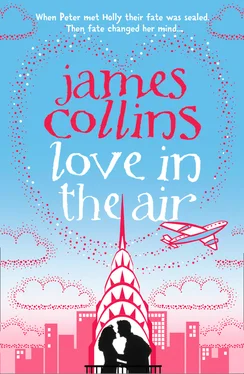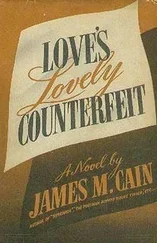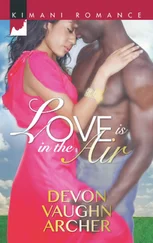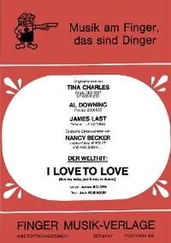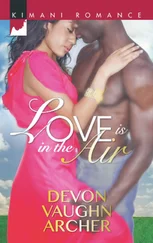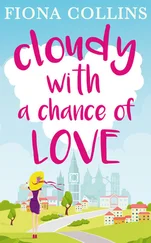As Peter arrived, Jonathan was just finishing a story. Here is what he read:
It was cold. The sky was clear. Dogs growled and barked. The man next door kept three, tied up. A breeze, out of the south now, carried a faint, acrid odor from the plant. The rusty frame of a swing set, with no swings, stood near the fence. Typical Jake, to scavenge the frame and never find swings. At this time of year it was hard to believe that in a few months wildflowers would grow up around it. Dana tried to picture them, and to remember their names: pussytoes, Venus’s looking-glass, cocklebur. The sun rose higher in the bright azure sky. All of a sudden, Dana saw the crystals of frost on the grass glitter with reds and purples and yellows. It was as if the entire yard had been scattered with gemstones.
Dana shivered. She lit a cigarette. On the sofa in the double-wide, Jen was still asleep. Dana should wake her. Jen would say, “Mom, you’ve been smoking!” Dana would wait. She would finish her cigarette and she would wait awhile. This was something Jen didn’t have to know. There were so many things that she did.
Here Jonathan fell silent. He kept his head down, still staring at the book on the lectern. He tightened his lips. Then he looked up with a distracted, vulnerable expression. The inside tips of his eyebrows were raised, creating an ankh-shaped wrinkle in his brow. When the audience began to applaud, Jonathan lowered and raised his head again. Startled, pleased, humbled, embarrassed. Then he nodded his thanks, as a gray-haired woman stepped up to the lectern.
“Thank you, Jonathan. Thank you. That was just marvelous.” After a new crescendo, the applause died down. The woman spoke. “I’m sure many of you have questions for Jonathan. And goodness, the hour is drawing nigh, isn’t it? So I think, now, if Jonathan wouldn’t mind, we’ll open up the floor.”
“Certainly, Martha, thank you,” said Jonathan. A willowy young woman, but they were all willowy young women, raised her hand.
“Yes, right there,” said Jonathan.
“Hi, Jonathan,” she said. “Thanks. I’d just like to ask, what do you think about the environment?”
A question like this, both very heavy and inane, didn’t faze Jonathan for a second. “It’s incredibly important,” he replied in a solemn tone. “I get so angry when I think about what we’re doing to it. I wish my publisher would use recycled paper. There’s no reason that a tree should die for this.” He held up his book, prompting gentle, sympathetic laughter. “Well, they say that trees are one thing that are renewable. I try to do what I can. What I think is very important is … mindfulness … to have mindfulness about how we are treating our world. You know, there are poets who are known as nature poets, but to my mind, all writers are nature poets, and so have a special interest in protecting nature, and a special duty.” Applause.
There were a few more questions. “In your first novel, when Sam drowns in the drinking game, did that really happen?” “Where do you get the names for your characters?”
Jonathan called on another young woman. “Hi,” she said. She was dark-skinned and slight, and she wore a thin, peasanty blouse. “I just wanted to ask, you seem to be able to write about women so well, from their point of view. I wonder if you would tell us something about that?”
“Oh, that’s kind of you, very kind.” Jonathan smiled thoughtfully. “Let me think. I don’t really know what to say.” In truth, Jonathan had been asked this question at every reading he had ever given and in every interview. “If I’m able to get into the heads of women I guess it’s because women have always seemed so much more interesting to me than men, frankly. Women are more powerful, and I’m interested in power. So maybe I’ve watched women more carefully.” Jonathan paused. He looked down and swallowed. He seemed to be collecting himself. Then he spoke.
“But … but I guess there’s a simple explanation. It’s not something I usually mention, but something about tonight …” The heads of loosely gathered hair canted forward. “You see … my mother died when I was quite young.” Jonathan paused again, remembering. “In the last memory I have of her, we were at the shore and we were playing in the waves, and she was holding me.” He fell silent. The room was silent. The salt water, the sun, the smell of his mother’s suntan lotion, the feel of her body against his, the thrilling surf—everyone in the room believed that they were sharing Jonathan’s recollected sensations. “So of course I’ve spent my whole life trying to get her back and a lot of time trying to get close to women, studying them, trying to figure them out.” He laughed. “Trying to get them to love me!” The audience laughed, then sighed, then applauded.
Jonathan signed books for a while, chatting with members of his public. They said things to him that they had obviously been rehearsing in their minds. “Thank you for telling the truth.” Bashful Jonathan would reply, “Please—no. Well … thanks.” Peter hovered outside the eddy of admirers. Finally Jonathan had given his last humble smile, the smile of a servant unworthy of his mistress’s praise, and turned so that his eyes lit upon Peter, which prompted a different kind of smile. He signaled Peter over with a nod. Jonathan stood up and they shook hands.
“Hello, my friend,” he said. “Thanks for coming.”
Peter looked at him for a second.
“When did you get so green?”
“Me?” Jonathan said. “Why, I’ve always been that way! You remember—I drove that guy’s hybrid once.” Then he began to chuckle. His eyes narrowed and he grinned, pleased with himself.
“How did you like the thing about my mother?”
“I thought it was asinine.”
Jonathan chuckled.
“Your mother lives on a golf course in South Carolina.”
“Oh, come on,” Jonathan said, “nobody’s going to write an exposé. Anyway, if I ever became famous enough for anyone to care, it would just cause a fuss about how I mythologized my past. That’s always good copy.” He laughed and shook his head. “Maybe I’ll try a dead little sister next time, ‘the bravest person I’ve ever known’ … Oh, Christ! Hold on a second.”
Two women were approaching, one in her forties, the other in her twenties, and Jonathan moved to greet them.
“Sasha! Allison!” Jonathan said. He embraced them both. “Thanks for being here. It makes it so much easier to get through these things.”
You were terrific, it went great, they told him. Jonathan made the introductions.
“Sasha Petrof, Allison Meeker, this is Russell Peters, one of my good friends. Russ, Sasha is my editor, the person who has almost convinced me to share her delusion that I can write. And Allison’s her assistant, and she’s—well, she’s the person I depend on for everything.”
Both women were very good-looking. Sasha was lean and tall, chicly dressed; Allison was shorter and more voluptuous, a quality that seemed to embarrass her, and dressed more like a kid, but expensively. They both carried the same costly bag (Sasha was married to a Wall Street guy and Allison was the daughter of a Wall Street guy). Peter shook hands with them. Sasha’s fingers were narrow and he could feel the bones and knuckles. The skin was moisturized, but a little rough nevertheless. Shaking Allison’s hand, in contrast, was more like grasping a ripe plum. Peter noticed how in chatting with Jonathan they both had the same coded look, a look that was intended to be understood by Jonathan but not the other person standing there.
Sasha addressed Peter. “Allison and I were talking before. We hadn’t known that Jonathan’s mother had died when he was so young. Is that something he’s ever really talked about?”
Читать дальше
